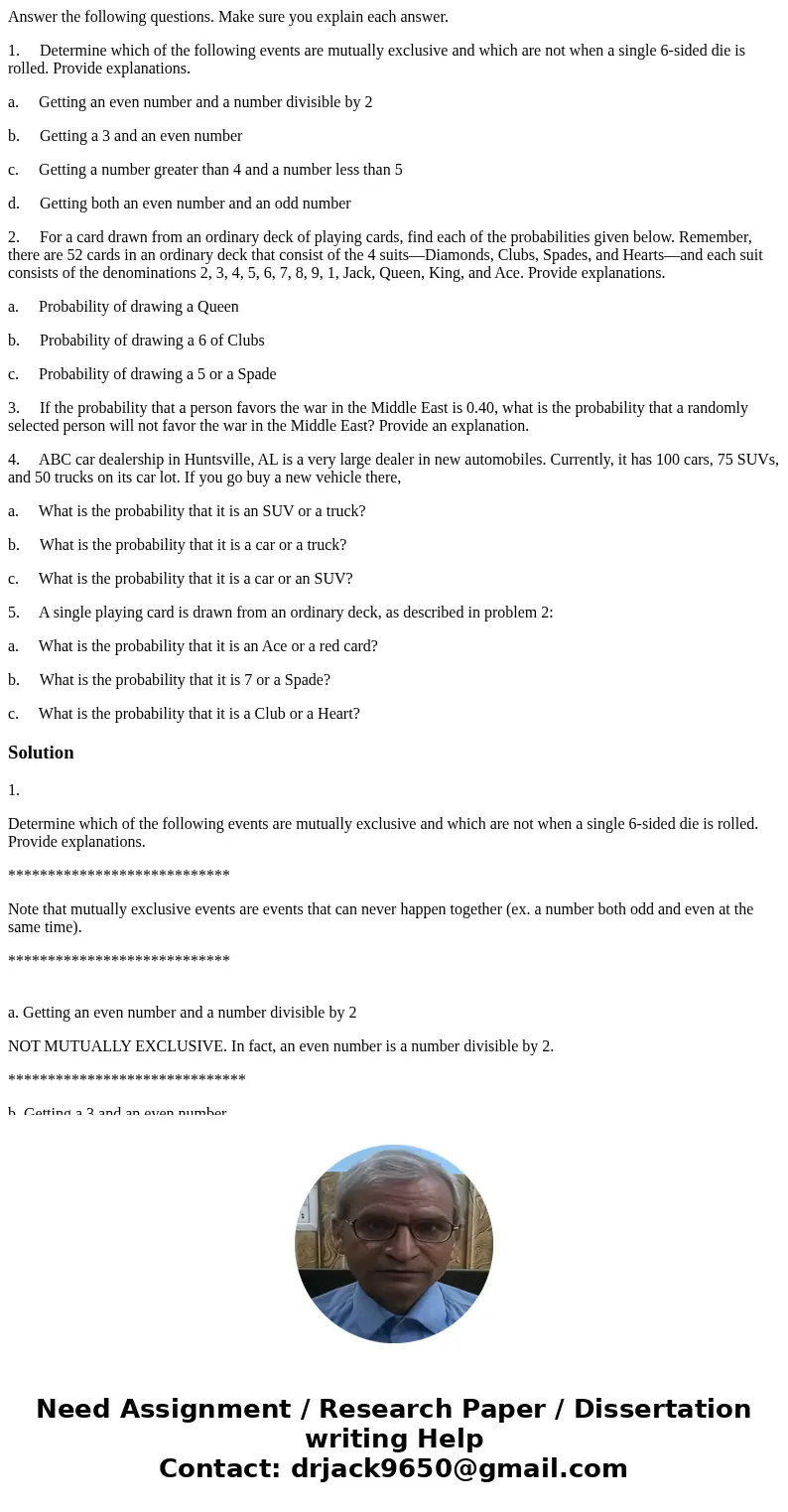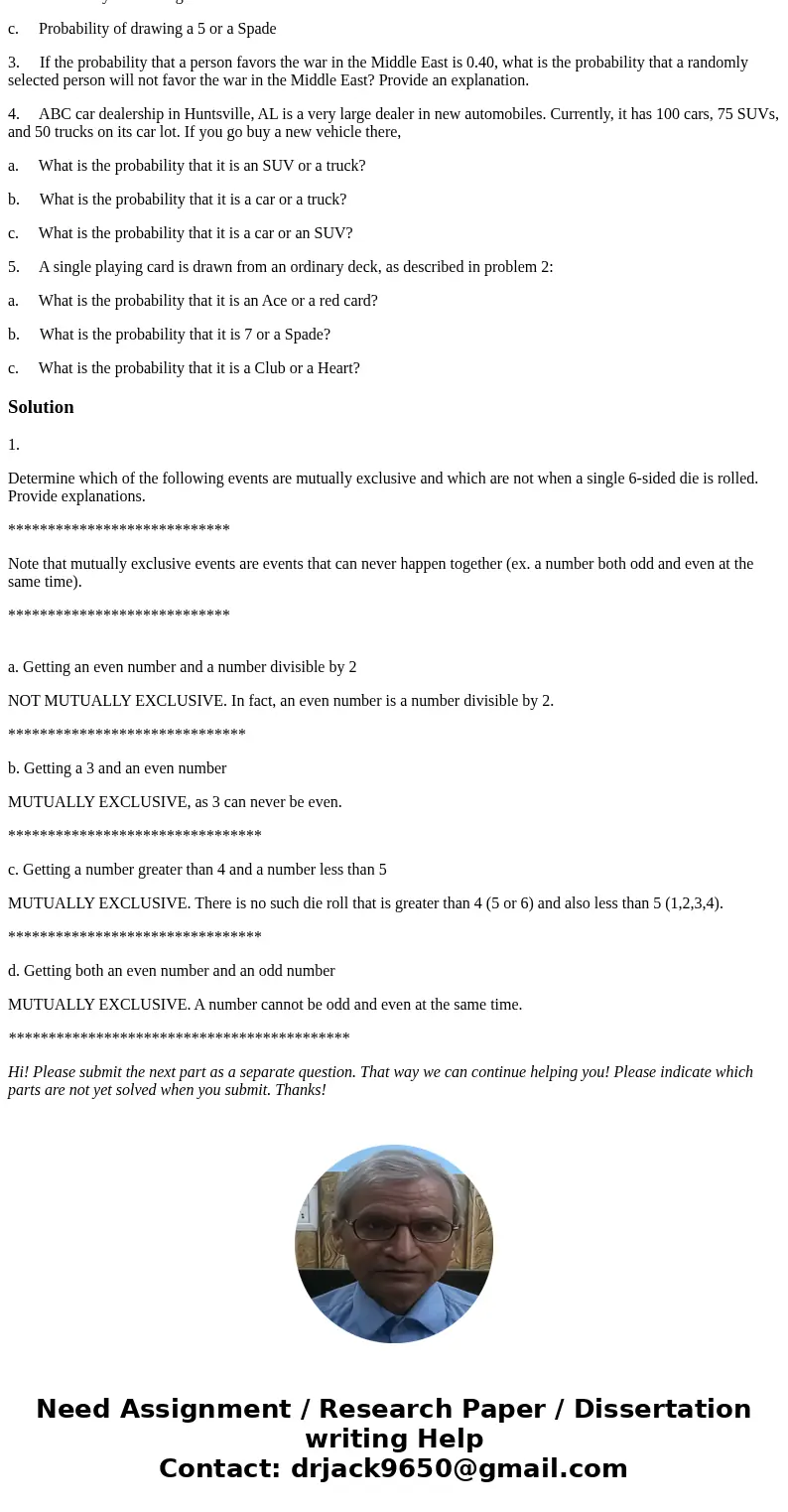Answer the following questions Make sure you explain each an
Answer the following questions. Make sure you explain each answer.
1. Determine which of the following events are mutually exclusive and which are not when a single 6-sided die is rolled. Provide explanations.
a. Getting an even number and a number divisible by 2
b. Getting a 3 and an even number
c. Getting a number greater than 4 and a number less than 5
d. Getting both an even number and an odd number
2. For a card drawn from an ordinary deck of playing cards, find each of the probabilities given below. Remember, there are 52 cards in an ordinary deck that consist of the 4 suits—Diamonds, Clubs, Spades, and Hearts—and each suit consists of the denominations 2, 3, 4, 5, 6, 7, 8, 9, 1, Jack, Queen, King, and Ace. Provide explanations.
a. Probability of drawing a Queen
b. Probability of drawing a 6 of Clubs
c. Probability of drawing a 5 or a Spade
3. If the probability that a person favors the war in the Middle East is 0.40, what is the probability that a randomly selected person will not favor the war in the Middle East? Provide an explanation.
4. ABC car dealership in Huntsville, AL is a very large dealer in new automobiles. Currently, it has 100 cars, 75 SUVs, and 50 trucks on its car lot. If you go buy a new vehicle there,
a. What is the probability that it is an SUV or a truck?
b. What is the probability that it is a car or a truck?
c. What is the probability that it is a car or an SUV?
5. A single playing card is drawn from an ordinary deck, as described in problem 2:
a. What is the probability that it is an Ace or a red card?
b. What is the probability that it is 7 or a Spade?
c. What is the probability that it is a Club or a Heart?
Solution
1.
Determine which of the following events are mutually exclusive and which are not when a single 6-sided die is rolled. Provide explanations.
****************************
Note that mutually exclusive events are events that can never happen together (ex. a number both odd and even at the same time).
****************************
a. Getting an even number and a number divisible by 2
NOT MUTUALLY EXCLUSIVE. In fact, an even number is a number divisible by 2.
******************************
b. Getting a 3 and an even number
MUTUALLY EXCLUSIVE, as 3 can never be even.
********************************
c. Getting a number greater than 4 and a number less than 5
MUTUALLY EXCLUSIVE. There is no such die roll that is greater than 4 (5 or 6) and also less than 5 (1,2,3,4).
********************************
d. Getting both an even number and an odd number
MUTUALLY EXCLUSIVE. A number cannot be odd and even at the same time.
*******************************************
Hi! Please submit the next part as a separate question. That way we can continue helping you! Please indicate which parts are not yet solved when you submit. Thanks!


 Homework Sourse
Homework Sourse